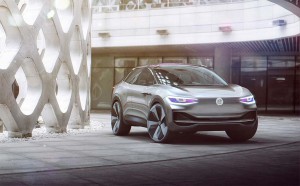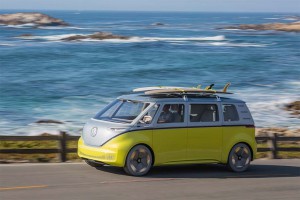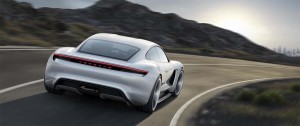Volkswagen AG said Friday it will spend over 34 billion Euros, or $40 billion between now and 2022 on electrified powertrain technology, autonomous vehicles and other futuristic concepts, aiming to leapfrog key competitors like General Motors and Toyota.
VW already announced plans to offer electrified variants of every model sold by its dozen passenger car brands, including 50 all-electric models, between now and 2025. It also is developing electrified commercial vehicles.
“We are laying the foundation for making Volkswagen the world’s number-one player in electric mobility by 2025,” Chief Executive Matthias Müller said. “The entire automotive industry is facing fundamental changes in the coming years, which will provide great opportunities, but also require us to put in tremendous efforts.”
Like all automakers, VW is facing strict new global emissions and mileage mandates, as well as increasing competition from both traditional competitors and new start-ups like Tesla. Until recently, Volkswagen’s efforts were focused on advanced diesels, but in the wake of its costly and embarrassing diesel emissions scandal, the German maker is pulling back – though not entirely abandoning – that technology.
Over the last two years it has rolled out a number of concept electric vehicles, including several that will eventually be sold through a new sub-brand called Volkswagen I.D. That includes the I.D. Crozz electric SUV unveiled at the Frankfurt Motor Show last September, as well as an all-electric take on its classic Microbus, dubbed the I.D. Buzz.
(For more on the I.D. Crozz concept, Click Here.)
The push to electrify its line-up won’t be limited to the flagship Volkswagen brand, however. Low-end marques Seat and Skoda will get a mix of mild hybrids, conventional hybrids, plug-ins and pure battery-electric vehicles, as well VWAG’s luxury divisions. Audi is getting ready to launch production of an all-electric SUV that will offer an alternative to its conventionally powered Q5 ute. Porsche will weigh in with the Mission E battery-electric sports car. And Bentley will add an all-electric model alongside the current plug-in hybrid version of its big Bentayga introduced last year.
The corporate spending plan also includes $1.7 billion that will go into the development of electrified – as well as autonomous and driverless – trucks. Working with affiliate Navistar International, it hopes to introduce an electric medium-duty truck in North America by late 2019 or early 2020, according to VW Truck & Bus chief Andreas Renschler.
(For more on VW’s EV truck plans, Click Here.)
The push into electrification comes despite the slow acceptance of battery technology by consumers around the world. In the U.S., for example, battery-based vehicles will account for barely 3% of the total market for 2017, though the numbers are on the rise. But a new study by the Boston Consulting Group, or BCG estimates fully half of the U.S. new vehicle market will be electrified by 2030, including at least 20% pure battery-electric vehicles.
The U.S. is actually just the second-largest market for battery models right now, slipping further and further behind China which recently announced plans to increase mandates for so-called “New Energy” vehicles. VW said it plans to spend $11.8 billion to meet those Chinese mandates alone.
(For more on VW’s Chinese plans, Click Here.)
As the largest vehicle market in the world, China has plenty of clout, but other key markets, including the U.S., Japan and Europe are moving in a similar direction. In fact, Norway and India plan to ban the internal combustion engine entirely in the coming decade, while the UK, France, Germany and other countries are considering similar moves.

VW will face tough competition from brands like Tesla. CEO Elon Musk on Thursday revealed both an electric Semi and a new Roadster.
VW is by no means the only manufacturer making the switch to electric drivetrain technology. Volvo plans to only offer some form of battery-based powertrain for all models launched in 2018 and beyond. General Motors recently announced plans for 20 all-electric models by 2023, and said it will go entirely battery-electric in the years beyond.
As with electrification, automakers are investing massively in autonomous and fully driverless technologies, with the first fully hands-free vehicles expected to reach showrooms by 2025. In some ways, that technology could prove even more disruptive, among other things potentially displacing millions of professional drivers. Industry analysts expect that most driverless vehicles will eventually be equipped with electrified drivetrains.
By 2030, BCG forecast, at least half of the all-electric vehicles sold in the U.S. will be fully driverless and operated by ride-sharing services such as Lyft and Uber.
(For more on the BCG study, Click Here.)



